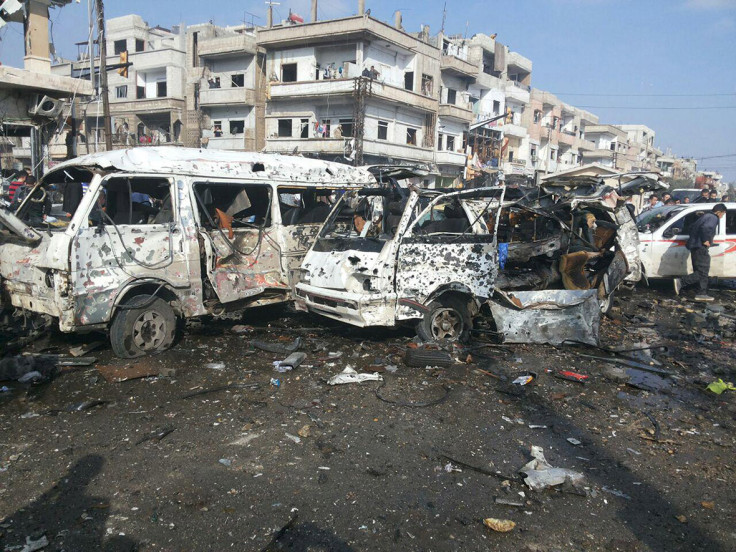US and Russia announce ceasefire in war-torn Syria from 27 February

The US and Russia have announced a framework for a ceasefire that will take effect in war-torn Syria, effective from 27 February.
The cessation of hostilities will not include Islamic State (Isis) or the Al-Qaeda affiliate Al-Nusra Front. It also leaves the option to exclude other groups deemed 'terrorist organisations' by the UN Security Council.
A joint statement from the US and Russia said that all other parties fighting on the ground must indicate to Russia or the US whether they will participate in the ceasefire by midday Damascus time on 26 February.
In addition, the opposition and the Syrian government must agree to allow "rapid, unhindered and sustained" humanitarian aid access and to cease all attacks – whether aerial bombings or otherwise – on other parties to the agreement.
Riad Naasan Agha, a spokesman for the High Negotiations Committee (HNC) which represents the main grouping of opposition factions in Syria, told AFP that the committee had discussed the ceasefire with the US special envoy to Syria Michael Ratney on 22 February.
According to FT, the HNC has now issued a statement indicating it provisionally accepted the terms of the cessation of hostilities. The HNC said that any ceasefire must include provisions for Russia, Iran and foreign militia forces that back the Assad regime to stop fighting.
There are concerns that the deal does not rule out air strikes, which rebels fear will be used against them as it does not prevent foreign powers providing military aid to the warring parties. Syrian President Bashar al-Assad has already said that he would accept a ceasefire as long as "terrorists" did not use it to improve their positions.
In addition, Moscow, Syria's Assad regime, and Washington will set up a communication hotline and potentially a "working group" to ensure the plan's implementation and that all parties honour the ceasefire.
According to John Kerry, the US Secretary of State, US President Barack Obama and his Russian counterpart Vladimir Putin will be speaking "in the next days or so" on the terms of implementing the agreement. A previous ceasefire announced earlier this month was supposed to have taken effect on 19 February.
UN Secretary General Ban Ki-moon welcomed the ceasefire deal, saying that it was a "long-awaited signal of hope." He urged all parties to comply.
The ceasefire announcement comes just days after a deadly attacks near Homs and Damascus, which killed almost 200 people in a series of blasts.
Russia entered the Syrian conflict in September 2015 when it started air strikes against alleged terrorists, although the US has accused it of targeting non-jihadist rebel forces in support of Assad. Iran has sent military advisers to Syria and the Tehran-backed Lebanese Shiite movement Hezbollah has deployed at least 6,000 militants to back Assad's forces.
Sergei Shoigu, Russia's Defence Minister made a surprise visit to Tehran on 21 February, saying that he was delivering a "special message" from Putin to Iran President Hassan Rouhani. Any ceasefire would only be workable if Iran participated, AFP noted.
© Copyright IBTimes 2024. All rights reserved.






